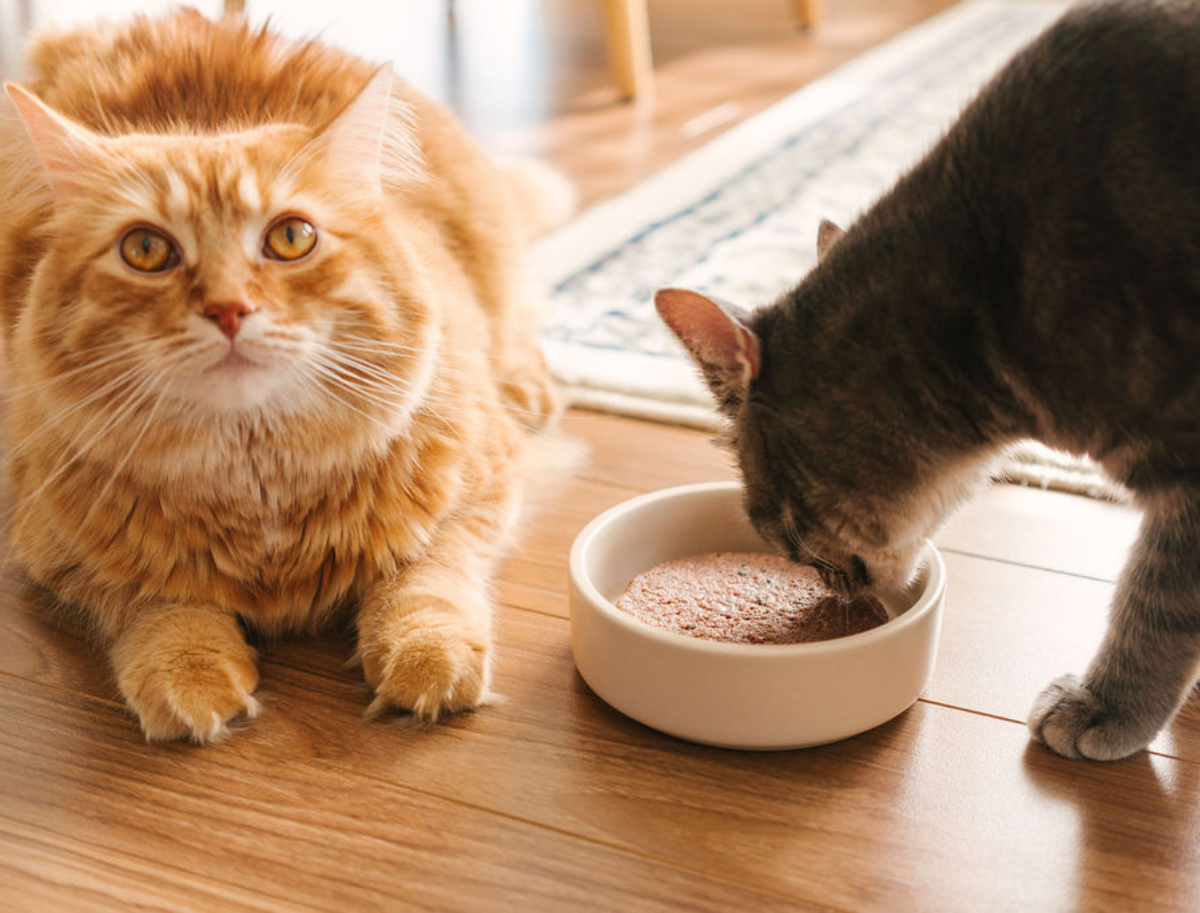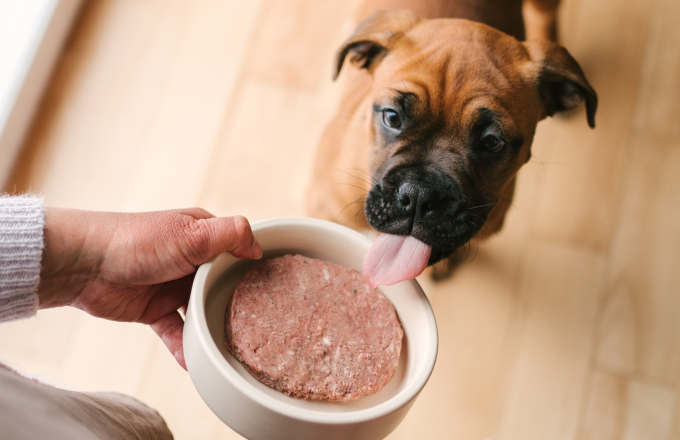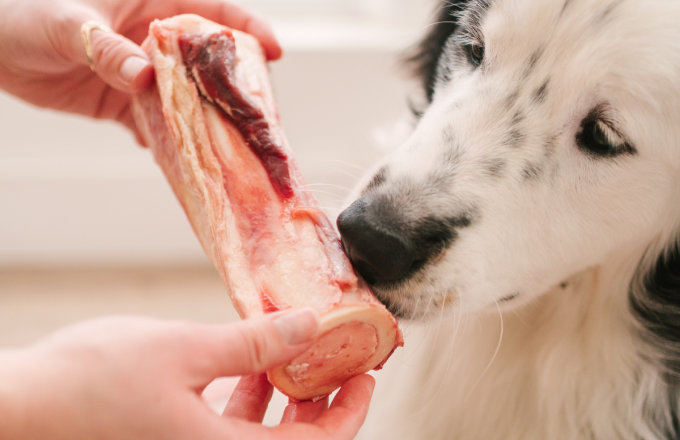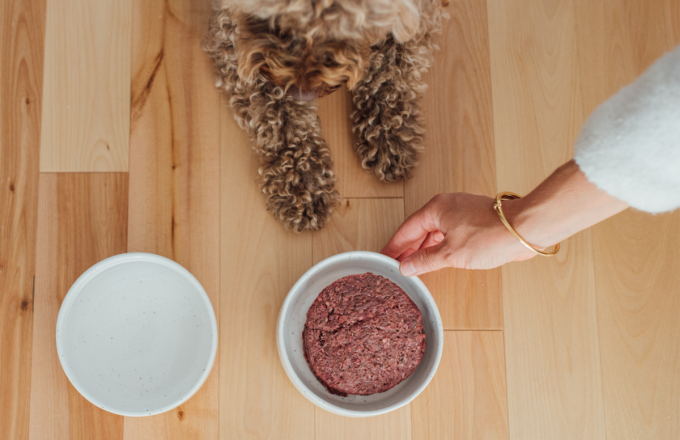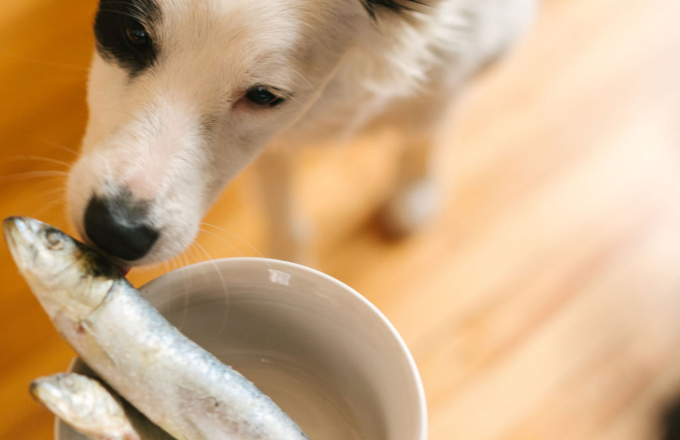Raw food: the solution to urinary problems in cats
Does urinating pose problems for your cat? Do these problems prompt frequent visits to the vet? It’s never easy when our pet is in pain. That’s why we’re always on the lookout for solutions and prevention tactics to certain health problems.
What if we told you that raw food could be the solution to your feline’s urinary problems? In this article, we’ll give you an overview of the problem as well as various reasons why we believe a raw meat diet is the best way to prevent it.
Symptoms of urinary problems in cats
Generally speaking, urinary problems are extremely painful for cats and must be treated quickly. Pay attention to the following symptoms:
- Difficulty urinating (with or without urinating)
- Cries when urinating
- Licks genitals excessively
- Presence of blood in urine
Types of urinary problems in cats
To be honest, it’s extremely common for a cat to experience urinary problems at one time or another in their life. Although symptoms can be similar from one variant to another, there are three reasons for the problem.
Infections
Bladder infections are less common in cats. These are responsible for only 11% of feline urinary problems. These infections can be caused by:
- Bacteria
- Fungi
- Parasites
- Viruses
In the majority of cases, bacteria is the culprit. It’s important to schedule an appointment with your veterinarian as soon as symptoms arise. They will review your cat’s symptoms to confirm the problem and the cause.
Urinary crystals (uroliths)
Cats can develop bladder crystals and stones. These form as a result of an inflamed bladder lining and/or an imbalance in the urine’s pH levels. This can often be attributed to a poor diet or an underlying disease. That said, diet is the most common reason crystals form.
Inflammation (cystitis)
60% of cases of urinary diseases are related to feline idiopathic cystitis (FIC). Often difficult to manage, this inflammation of the bladder and/or urethra is often of unknown cause. Because of this, it’s difficult to treat cystitis. Antibiotics can be prescribed to prevent FIC, but they can cause an imbalance in the microbiome and thus lead to persistent urinary and digestive problems.
Reasons for poor urinary health in cats
Alone or in combination, several factors can cause urinary health concerns for your cat.
A temporary health problem or a disease
A urinary infection, crystals, or inflammation can be indicative of a disease such as diabetes or a health problem such as a blocked urethra or urinary tract infection. It’s important to meet with your veterinarian and have your cat undergo several tests to confirm the cause.
Water
The water your cat consumes could be the cause of their urinary problems. If you use tap water, be sure to filter it before serving it to your cat. The chlorine and heavy metals found in unfiltered water can cause inflammation and increase problems.
Stress
Like humans, stress can impact your cat’s health. The stress they experience can increase the risk of several diseases including urinary problems. Stress in cats can be caused by:
- Containment (living indoors only)
- Sedentary lifestyle
- No space to move
- Dirty litter or not enough litter for the number of cats (there should be one per cat)
- Boredom
- Displacement
Where possible, don’t hesitate to minimize these stress factors for your feline.
Diet
The foundation of your pet’s health, their diet, may very well be the cause of their urinary problems. It’s also been proven that dry diets are great contributors in the development of urinary problems in cats. While wet diets, including raw food, reduce this risk.
This is easily explained: cats don’t have a natural thirst and are supposed to consume water in their food to compensate. Raw food will help your cat stay hydrated, maintain proper urinary pH levels, and provide them with adequate nutrition to maintain good health.
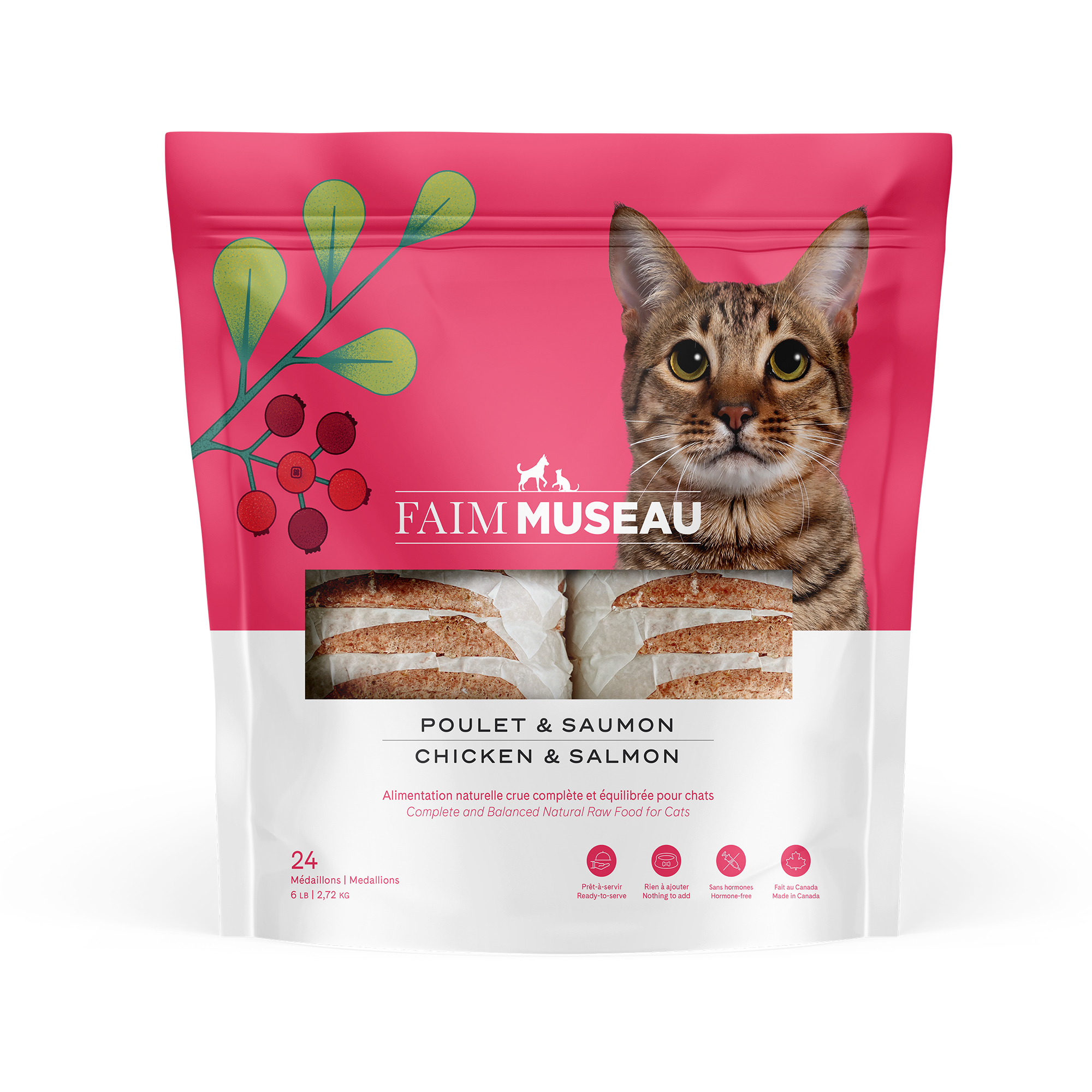
Dietary solutions to urinary problems
Now that you know more about the symptoms and causes of urinary problems in cats, discover nutritional solutions to prevent and reduce the risk of disease.
Probiotics
Many veterinarians recommend felines take probiotics. These help bring the microbiome back into balance after an antibiotic, which prevents inflammation. Some give it to their cat preemptively in order to maintain a good balance of the flora in the bladder.
N-acetyl glucosamine
NAG is a form of glucosamine that helps reduce inflammation of smooth muscles including the bladder and digestive mucous membranes. It can help reduce inflammation without the side effects of anti-inflammatories.
Herbs
Grass can be a good addition to your pet’s wet diet to maintain urinary health. Consider marshmallow root, barberry, nettle leaf, and dandelion, all of which are safe for cats.
Cranberries
Cranberries have several health benefits for your feline. They contain proanthocyanidin and vitamin C. Proanthocyanidin prevents pathogenic bacteria from sticking to the bladder wall. Vitamin C supports immune modulation and reduces the risk of cellular oxidation, which allows for better general health and bladder health.
Discover Our Chicken & Cranberry Recipe
Raw food can help prevent urinary problems
Cats aren’t thirsty by nature, so it’s important that they stay hydrated by other means than a water bowl. Raw food helps keep your cat hydrated and thus prevents urinary problems.
Better hydration
By opting for raw food, you can rest assured that your cat is consuming more liquid than they would with a dry diet. This prevents dehydration and dilutes their urine. The resulting larger urine dilutes the stone-forming constituents.
Optimal absorption
Being grain-free, a raw diet allows cats to absorb minerals such as phosphorus and magnesium, both of which are required for good urinary health.
Balanced pH
A proper supply of water combined with the minerals of raw meat promotes good urinary health in cats. This helps balance the pH of the bladder to prevent infections and other urinary problems.
Overall health improvement
Along with the benefits to your cat’s urinary health, a raw diet will lead to a huge improvement in their overall health, especially their immune system. This makes it possible to reduce or eliminate the components that form crystals.
Learn About the Benefits of Raw Food
Crystal prevention
By increasing the presence of cartilage, vitamin C, vitamin A, essential fatty acids, and other protective nutrients, a raw diet brings together a whole group of nutrients important to prevent the formation of crystals in cats.
Raw food is a fantastic ally to your cat’s general health and urinary health. Thanks to this diet, your cat receives the water required to support their development. As they say, prevention is better than a cure. Remember to schedule an appointment with your veterinarian if your cat is suffering from any of the symptoms listed above.

